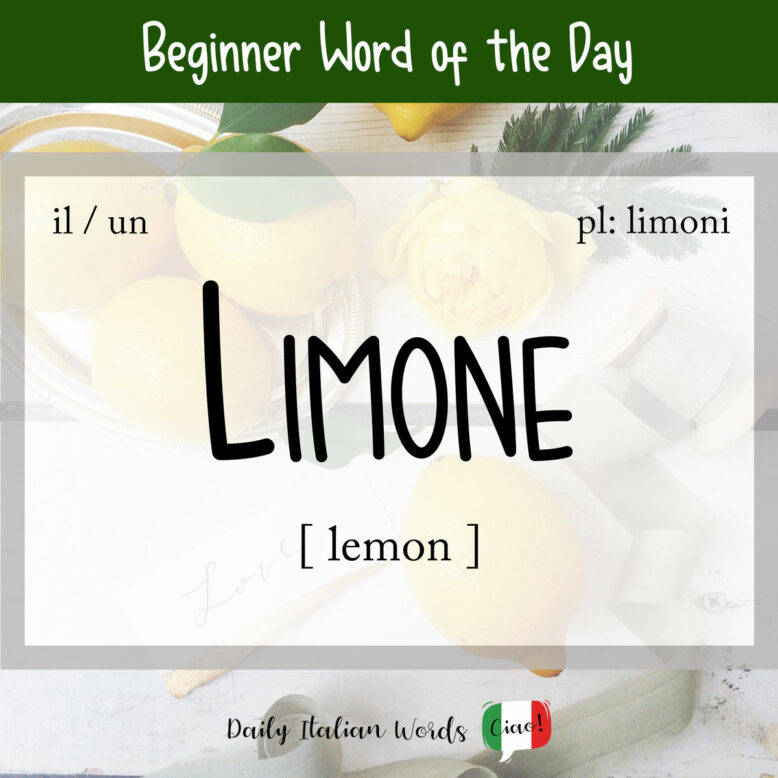The Italian word for lemon is limone, which comes from the Arabic līmūn, the collective term for fruits of this kind.

Limone is a masculine noun, and its plural form is limoni.
il limone
the lemon
un limone
a lemon
i limoni
the lemons
dei limoni
(some) lemons
Interestingly, limone is also the name given to the lemon tree, but if you want to be more precise, you can also say albero di limone (with albero meaning ‘tree‘).
I limoni crescono sull’albero di limone.
The lemons grow on the lemon tree.

To say that something has a lemony flavour, you can use the expressions al limone or al gusto di limone.
Vorrei un gelato al (gusto di) limone per favore.
I’d like a lemon flavoured ice cream, please.
Lemons are very sour (acidi), so only the most masochistic among us eat them alone! However, you can make many eatable and drinkable treats out of them including:
- crema al limone = lemon curd
- succo di limone = lemon juice
- torta di limone = lemon cake
- crostata al limone = lemon tart
- spremuta di limone = freshly squeezed lemon juice
- tè al limone = lemon tea
- sorbetto al limone = lemon sorbet
Many recipes call for the scorza di limone (lemon peel) rather than the liquid extract of the lemon itself.
And I think most of you would agree that there is nothing quite like adding una fetta di limone (a lemon slice) or two to a cool drink on a summer’s day!

By extension, limone can also denote the yellow colour of the lemon.
Idioms featuring the word ‘limone’
Essere giallo come un limone
Literal meaning: to be as yellow as a lemon
English meaning: to be pale
Garantito al limone
Literal meaning: guaranteed with lemon
English meaning: a jocular way to say something is certain
Spremere qualcuno come un limone
Literal meaning: to squeeze someone like a lemon
English meaning: to take advantage of someone, to exploit someone
Heather Broster is a graduate with honours in linguistics from the University of Western Ontario. She is an aspiring polyglot, proficient in English and Italian, as well as Japanese, Welsh, and French to varying degrees of fluency. Originally from Toronto, Heather has resided in various countries, notably Italy for a period of six years. Her primary focus lies in the fields of language acquisition, education, and bilingual instruction.


